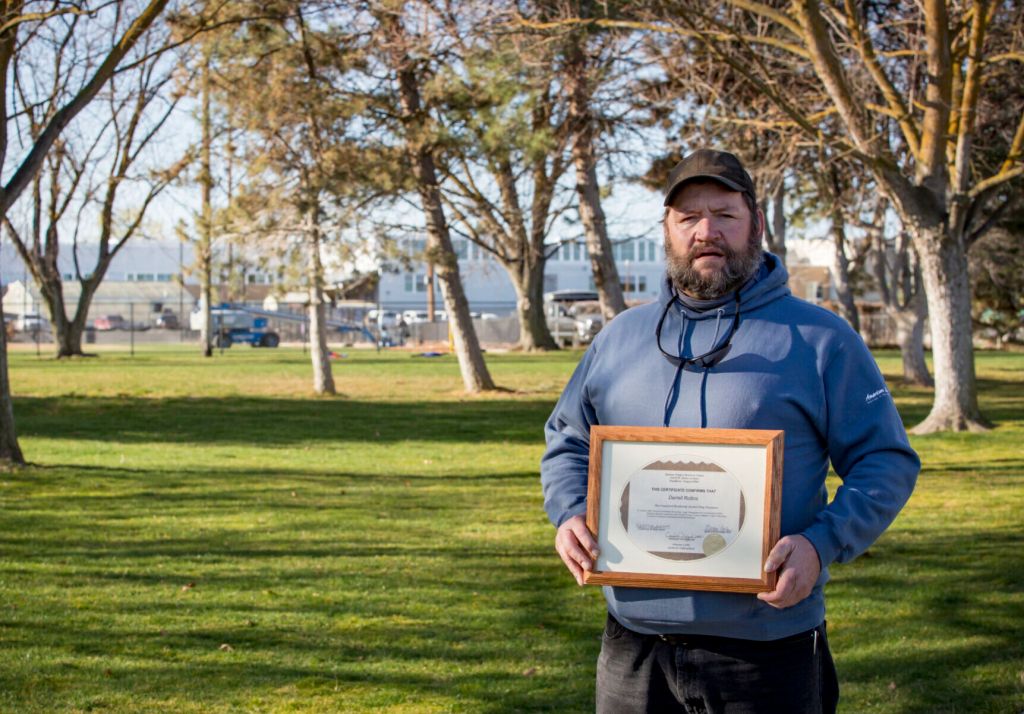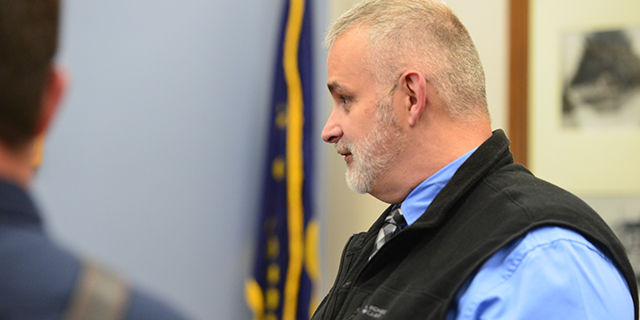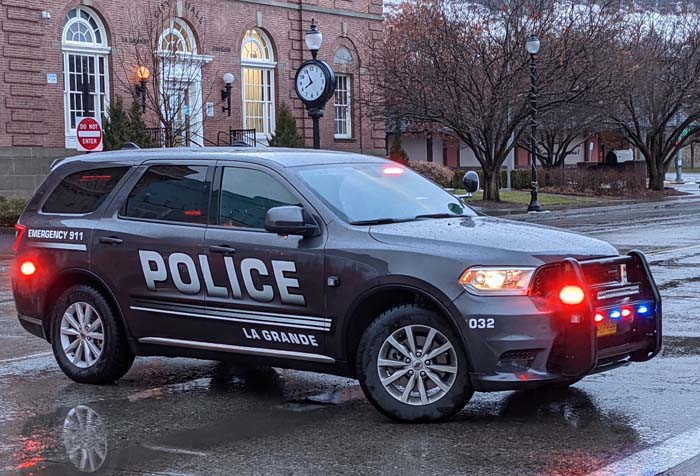Treatment center puts Hermiston man on the road to recovery
Published 5:00 am Saturday, March 27, 2021

- Darrell “Pete” Rollins poses with his Eastern Oregon Recovery Center certificate of completion on Tuesday, March 23, 2021, at McKenzie Park, Hermiston.
PENDLETON — When Darrell “Pete” Rollins entered inpatient treatment for addiction at Eastern Oregon Recovery Center in Pendleton, he didn’t think anything counselors there had to teach him would work.
Trending
“I packed my stuff every day for the first 30 days, wanting to leave,” the Hermiston man said.
One day, he said, he broke the rules of the center and was asked to give up his cellphone for a week. He asked for time to think about it and called his adult son, hoping his son would be outraged on his behalf and come to get him. Instead, his son asked him if he had really broken the rules, and when he said yes, told him he needed to own up to his mistake. So he handed over his phone, and in the process decided to embrace the recovery program instead of resisting it.
“When I gave up my phone, that was the best thing I ever did,” he said.
Trending
There were setbacks, after that. He almost left when his younger brother was killed in a motorcycle accident, before deciding his brother would have cared more about him getting clean than attending his funeral. But Rollins graduated from the recovery center in February and said he hasn’t used drugs since.
He is thrilled. He said he’s happier, healthier and has a better relationship with his children. He enjoys more activities and has a steady job.
“I wish I had done this 35 years ago,” he said. “The world has opened up to me.”
He has a lot of people to thank — his child’s pediatrician, to whom he confided his drug problem. His primary care physician. The people at Umatilla County Human Services, who helped get him into treatment and have supported him in the outpatient phase. His probation officer. Those who attend Narcotics Anonymous and Alcoholics Anonymous meetings with him. His boss at Bud Rich Potato, who held his job for him while he was in treatment. He said he couldn’t have done it without his children, either.
“I’m really fortunate my kids never turned their back on me,” he said. “That was my support.”
He also credited the staff at Eastern Oregon Recovery Center for their help. He said they managed to “teach an old dog new tricks” and could see through his excuses and get to the heart of the problem.
“I couldn’t believe the love and compassion they had for someone like me,” he said.
While staff can’t comment on individual patients’ treatment, employees of EORC can talk about the facility in general. Eastern Oregon Recovery Center began as Eastern Oregon Alcoholism Foundation in 1960. The overarching organization includes the 36-bed inpatient treatment center for men and women, the Eastern Oregon Detoxification Center and transitional housing. Located in Pendleton, it serves people throughout the state who are seeking treatment for addiction.
Kati Jokinen, clinical supervisor for the recovery center, said connecting people to a network of supportive people and to community resources for after they leave the center is crucial. They work with human services, Lifeways and other organizations to help “set people up for success” beyond the inpatient treatment phase.
“We do what we can to make sure their needs are met,” she said.
She and other staff said the pandemic has made some of that network-building more difficult. Family and friends have to video chat instead of visit in person to protect patients from COVID-19 exposure, for example, which doesn’t always have the same effect as in-person interactions.
Eryn Griffin, nursing superintendent at the detoxification center, said she saw people come through her doors last year who said a significant factor in their relapse was that NA and AA meetings and other support groups had stopped suddenly in the spring and then took a while to get going again virtually or in small groups outdoors.
“The isolation definitely played a huge role in a lot of peoples’ relapse,” she said.
Darren Cole, executive director, said he can’t emphasize enough that if people want to overcome addiction, or want their loved ones to overcome addiction, they have to understand that having a support system during and after treatment is critical.
The road to recovery isn’t easy, but Jokinen pointed out that’s something EORC staff know well — many of them are in recovery themselves and know exactly what it takes.
Rollins said once he reaches two years of sobriety, he hopes to work in addiction recovery in some way, perhaps as a motivational speaker. For now, he’s focused on his newfound outlook on life.
“I got my self-respect back,” he said, “and my life back and my health back.”
Grande Ronde Recovery Center: 541-663-4104
Eastern Oregon Detoxification Center: 541-278-2558
Eastern Oregon Recovery Center: 541-278-2558 ext. 102
Umatilla County Human Services: 541-564-9390
Power House Residential Drug Treatment Center: 541-567-2593
New Horizons: 541-289-0190
National Substance Abuse and Mental Health hotline: 1-800-662-4357









